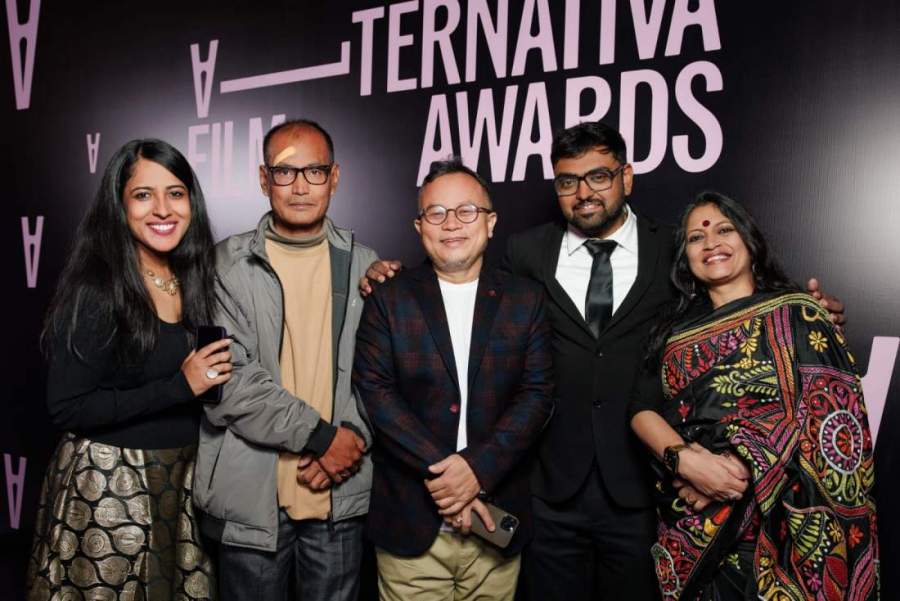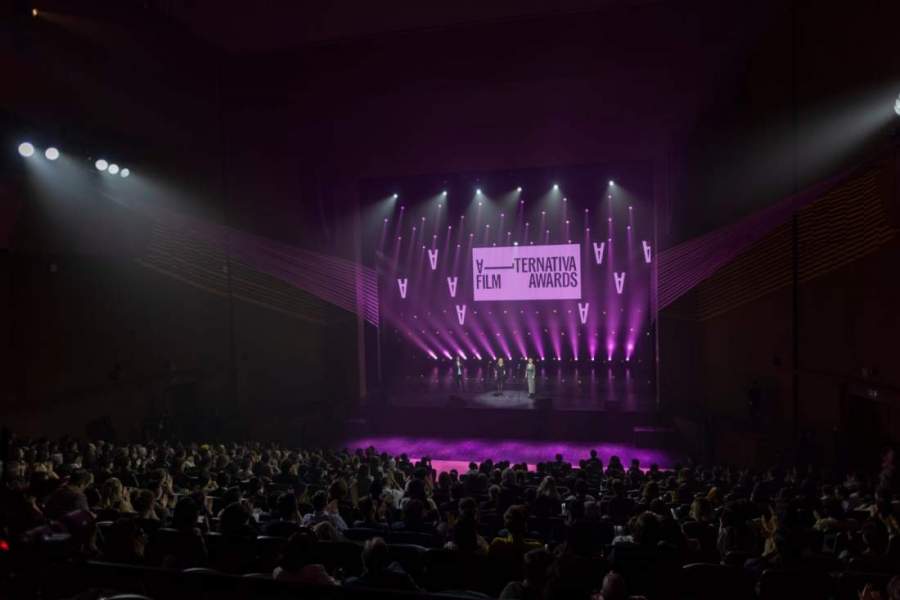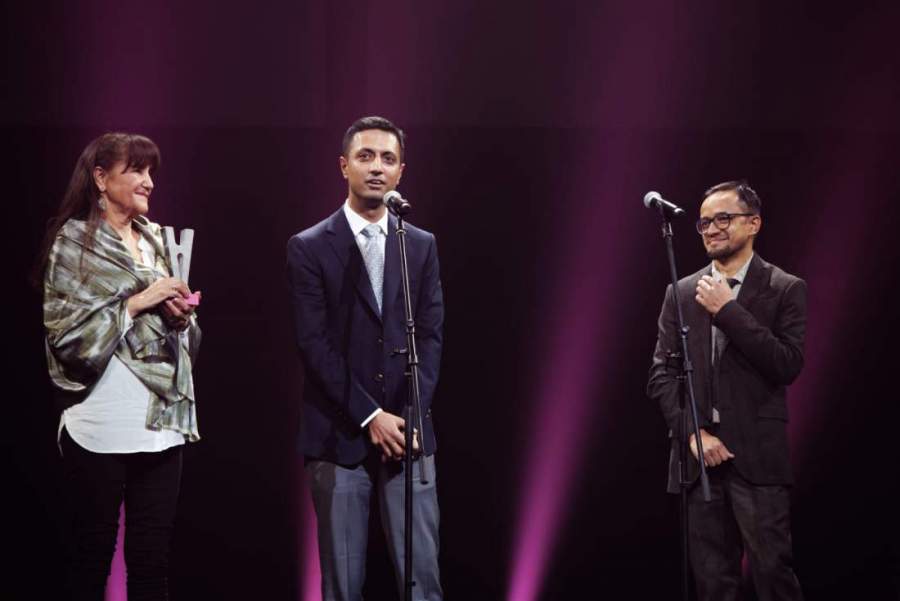

Global Non-Profit Initiative Spotlights Emerging Filmmakers from
Underrepresented Markets, Focusing on Central Asia in 2023
Alternativa Film Project, a global non-profit film initiative dedicated to supporting emerging
filmmakers from less developed screen industries, announced today the winners of its
inaugural Alternativa Film Awards at a ceremony in Almaty, Kazakhstan. The Alternativa
Film Awards are an alternative system of recognition, designed to evaluate both the artistic
merits of the films and their social impact, and aim to strengthen cultural ties between
various markets with a focus on Central Asia for the maiden edition. The initiative was
launched in September 2023 by inDrive, a global technology company known for its peer-to-
peer rideshare pricing model.
Rather than the traditional prizes, the Alternativa Film Awards bestow awards for talents and
titles exemplifying cultural, societal, and industry impact. Perennial awards include the
Spotlight Award, which honors a film that shines a light on a topic or story under the public’s
radar, and the Future Voice Award, given to a debutant filmmaker with the potential to
contribute to changes in the film industry and society in general.
Other distinctions include the Alter Award, which commemorates a film that addresses
critical social issues (such as human rights, migration, war crimes, and the environment); the
Nativa Award, which designates a film that touches upon topics of national or cultural
identity; and the Shorts Award, which is given to a short film produced exclusively in Central
Asia and aims to support local talents in their pursuit of filmmaking.
The winners were chosen by an independent, international jury of socially responsible film
directors and producers, helmed by award-winning Filipino director Brillante Mendoza, as
well as social activists, community leaders and NGO representatives from around the globe.
Mendoza is the first Filipino to receive the Best Director award at the Cannes Film Festival
for his film Kinatay in 2009, and the only Filipino to receive France’s Chevalier dans l’Ordre
des Arts et Lettres (Knight of the Order of Arts and Letters). The total prize fund stands at$100,000, to be equally divided among the five festival winners, so as not to establish hierarchy.

The first-ever Spotlight Award was granted to Bride Kidnapping (2023), a Kyrgyzstan film
directed by Mirlan Adbykalykov which charts the real-life abductions of girls for forced
marriages. Praising the film, the jury writes, “this dramatic film balances two worlds,
delivering a visually cinematic and thought-provoking examination of tradition and resilience.
And through it all, the film’s compassionate, unromanticized lens never loses sight of the
complexity of being human in an increasingly unraveling world.” The jury also gave a special
mention to Uzbekistan feature Sunday (2023, dir. Shokir Kholikov), a family drama about
generational evolution and tradition, for its “mature depiction of human relationships in a fast-
changing society.”

The Future Voice Award went to director Askhat Kuchinchirekov of Kazakhstan for their
feature Bauryna Salu (2023), a coming-of-age story that explores the meaning of family. The
jury chose Kuchinchirekov “for the director’s delicate vision and brilliant acting performance
in exploring how an outdated tradition turns into a modern drama.”
The Alter Award was granted to Kazakhstan documentary Qoryqpa (2023, dir. Katerina
Suvorova). The jury applauded the film, saying “Katya Suvorova’s new film reflects the
events of the last few years in Kazakhstan when keen expectations of societal change faced
many obstacles, but at the same time empowered a new generation of people, reflecting on
the future of their country. The film shows the complex processes that occurred within civil
society during this period, and it is ultimately not just about two activists and their journey but
about the whole society and the importance of working together for positive change.”
The Nativa Award was then bestowed to Nepal film No Winter Holidays (2023, dir. Radjan
Kathet and Sunir Pandey), a documentary about romantic rivals forced to survive together in
a snowbound village. The jury expressed admiration, saying it “takes you on a journey that is
a joy to experience. With few words, long shots, and a change in season it offers a truthful
tale that is stranger than fiction, culturally critical and distinctly beautiful.”
Finally, the Shorts Award was presented to Kyrgyzstan short film Son of the Sun (2022, dir.
Dastan Madalbekov) “for its frank and heartfelt story focusing on child’s subtle pains and
hidden fears which often go unnoticed by their families.” Beyond these five prizes, the
Resonance Award was given to Kazakhstan feature The Qash (2022, dir. Aisultan Seitov),
a manifesto film about the Kazakh famine of the 1930s, “for the bravery of the filmmakers to
give voice to a terrifying page in Kazakhstan history.” This honor celebrates outstanding
success with the audience, and while it is not part of the open call and does not carry a
monetary award, the winner in this category will receive a Pop Up Film Residency in collaboration with Tatino Films and the QCinema Project Market to develop their upcomingfilm project in 2024. The jury also decided to award a special mention to Happiness (2022, dir. Askar Uzabaev), a harrowing story about domestic violence in a small Kazakhstan village, “for an uncompromising portrayal of a terrible burning issue present in every part of the world.”
Jury President Brillante Mendoza said, “For me, a film’s artistic merit and social impact is
equally important. In approaching the judging process, we looked at the film’s potential
impact to broaden or diversify its audience, how we connected to the characters, and of
course the narrative expression that showed the director’s over-all film language. We had
such a strong crop of submissions which are all hugely worth watching – but especially urge
audiences to seek out the powerful work of our five winners.”
Liza Surganova, Head of Alternativa Film Project, said: “We are extremely pleased and
proud that despite being such a young initiative we have managed to attract a lot of attention
both in Central Asia and internationally. By launching Alternativa in Central Asia we wanted
to support brave and talented local filmmakers and help bring this part of the world into the
spotlight, and I hope that with our awards and our labs we’re heading firmly to this. Next year
we are going to continue that work by showcasing the winning films and by sending the
Central Asian filmmakers to creative residencies and acclaimed film festivals to gain more
international experience and acknowledgement.”
Beyond the Alternativa Film Awards, the initiative has launched free, educational
programming designed to uplift and upskill the next generation of filmmakers. The “Teen
Lab” bootcamp aims to cultivate young artistic talent, educating participants about the basics
of cinema and the importance of teamwork, while the “Impact Lab” is the first program
outside the Global North designed to teach working producers how to create more impactful,
sustainable, inclusive films by partnering with NGOs and state institutions. Other tenets of
the project include public film screenings, networking events, pitching workshops, and
“edutainment” shorts for social media.

Alternativa Film Project marks the latest in a long line of company initiatives to challenge
systematic injustice and provide social elevators to underserved communities. By shining a
light on less visible film industries, Alternativa aims to amplify a new generation of artistic
voices on a global scale.
About Alternativa Film Project
Alternativa Film Project is a new system of initiatives aimed to support and promote
filmmakers, as well as discover new voices from developing but less visible film industries.
Our mission is to help talents whose work can enrich our perception of the world enter the
limelight. Committed to inDrive’s mission to challenge injustice, we seek to build an impactfulinternational project that will transform the status quo in the world of cinema by boosting the
development of local industries and communities.
About inDrive
inDrive is a global mobility and urban services platform headquartered in Mountain View,
California, USA. The inDrive app has been downloaded over 175 million times, and was the
second most downloaded mobility app in 2022. In addition to ride-hailing, inDrive provides
an expanding list of urban services, including intercity transportation, freight delivery, task
assistance, courier delivery and employment search.
inDrive operates in over 4640 countries and 700 cities. It supports local communities via its
peer-to-peer payment model and community empowerment programs, which help advance
education, sports, arts and sciences, gender equality and other vital initiatives.
Comment